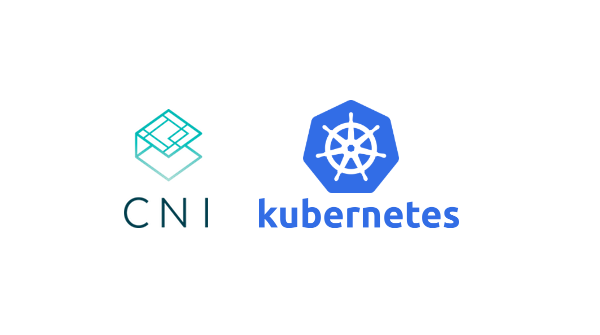
Kubernetes networking can be a daunting topic, even for experienced users. In this post, we'll delve into the most popular container networking solutions available for Kubernetes. We'll start with an overview of Kubernetes networking and the Container Network Interface (CNI) specification before exploring specific solutions like Flannel, Calico, Weave, and Cilium. By the end, you'll have a clearer understanding of what each networking solution offers and why Calico stands out as the best choice for many scenarios.
Understanding Kubernetes Networking
Networking in Kubernetes is complex because it operates at the pod level, where each pod receives an IP address. This model simplifies networking by eliminating the need to create links between pods or map container ports to host ports. However, it requires that pods can communicate with each other and that nodes can communicate with pods without needing Network Address Translation (NAT). This compatibility with the VM networking model makes Kubernetes networking both powerful and challenging.
The Role of the CNI Specification
The Container Network Interface (CNI) specification, part of the Cloud Native Computing Foundation (CNCF), standardizes how network interfaces are configured for Linux containers. The CNI specification focuses on container network connectivity and resource cleanup when containers are removed. This simplicity has led to its widespread adoption, with many supported plugins available. The CNI specification allows vendors to build specialized solutions that can be easily integrated into Kubernetes clusters, providing flexibility to meet diverse networking needs.
Exploring Popular CNI Plugins

Flannel
Flannel, created by CoreOS, is one of the oldest and most mature CNI plugins. It's known for its simplicity and ease of use, making it a great entry-level choice for Kubernetes cluster networking.
- Network Layer: Operates at Layer 3 (Network Layer).
- Backends: Supports VXLAN (default), UDP, and host-gw. Experimental backends include AWS VPC and IPSec.
- Drawbacks: Lacks advanced features like network policies and encryption.
Weave
Weave, developed by Weaveworks, creates a mesh overlay network that dynamically routes traffic within a Kubernetes cluster.
- Routing: Uses fast datapath for efficient traffic routing; fallback to sleeve packet forwarding.
- Features: Supports network policies and encryption (NaCl for sleeve traffic, IPsec ESP for fast datapath traffic).
Cilium
Cilium leverages eBPF (extended Berkeley Packet Filter) technology to provide advanced networking and observability features.
- Performance: Reduced overhead with efficient address lookup and policy enforcement using eBPF.
- Policies: Supports network policies at layers 3, 4, and 7 of the OSI model.
- Ideal For: Large-scale deployments requiring fine-grained security controls and deep observability.
Calico: The Best Choice for Kubernetes Networking
Calico, an open-source project by Tigera, has become one of the most popular CNI plugins due to its reliability, flexibility, and high performance. Let's explore what makes Calico stand out:
Comprehensive Network Policies
Calico’s most valuable feature is its robust support for network policies. These policies allow administrators to define and enforce security rules within the network. This granular control over traffic flow enhances security and compliance, making it ideal for environments with stringent security requirements.
- Policy Management: Allows precise control over which pods can communicate with each other and other network endpoints.
- Integration: Pairs well with other tools like Istio, a popular Kubernetes service mesh, for enhanced functionality.
High Performance
Calico operates at Layer 3 using the BGP protocol for routing packets, which ensures high-performance networking without the additional overhead of encapsulation.
- Routing: Uses BGP for native packet routing, improving performance compared to more complex backends like VXLAN.
- Encapsulation: Reduces complexity and improves troubleshooting by avoiding additional layers of encapsulation.
Scalability
Calico is designed to support large-scale deployments efficiently. It can handle high network traffic and large numbers of pods without significant performance degradation.
- Large Deployments: Capable of maintaining performance in clusters with thousands of nodes and pods.
- Resource Efficiency: Efficiently manages network resources, reducing overhead in large-scale environments.
Flexibility
Calico’s flexibility allows it to be used in conjunction with other CNI plugins like Flannel, creating hybrid solutions that leverage the strengths of multiple tools. This adaptability makes it suitable for various networking needs and environments.
- Hybrid Solutions: Can be combined with Flannel (e.g., Canal) to provide a balance of simplicity and advanced features.
- Configuration Options: Offers multiple deployment configurations, including standalone, with Kubernetes API datastore, or policy-only mode.
Rich Documentation and Community Support
Calico's extensive documentation and active community support make it easier for users to implement and troubleshoot. Managed solutions like Platform9’s Managed Kubernetes offer Calico with simplified configuration and maintenance, further enhancing its usability.
- Documentation: Detailed and comprehensive, making setup and maintenance straightforward.
- Community: Active user community providing support and updates, ensuring ongoing improvements and security patches.
Conclusion
Selecting the right CNI plugin is crucial for the success of your Kubernetes deployment. While Flannel, Weave, and Cilium each offer unique benefits, Calico’s comprehensive network policies, high performance, scalability, flexibility, and strong community support make it the best overall choice for Kubernetes networking. Whether you're setting up a small cluster or managing a large-scale deployment, Calico provides the robust networking capabilities needed to ensure your Kubernetes environment runs smoothly and securely.
The selection of an optimal networking plugin holds immense significance, as it can profoundly shape the outcome of your Kubernetes experience. Therefore, we encourage you to dedicate time and effort to explore diverse alternatives and assess their compatibility with your specific needs.